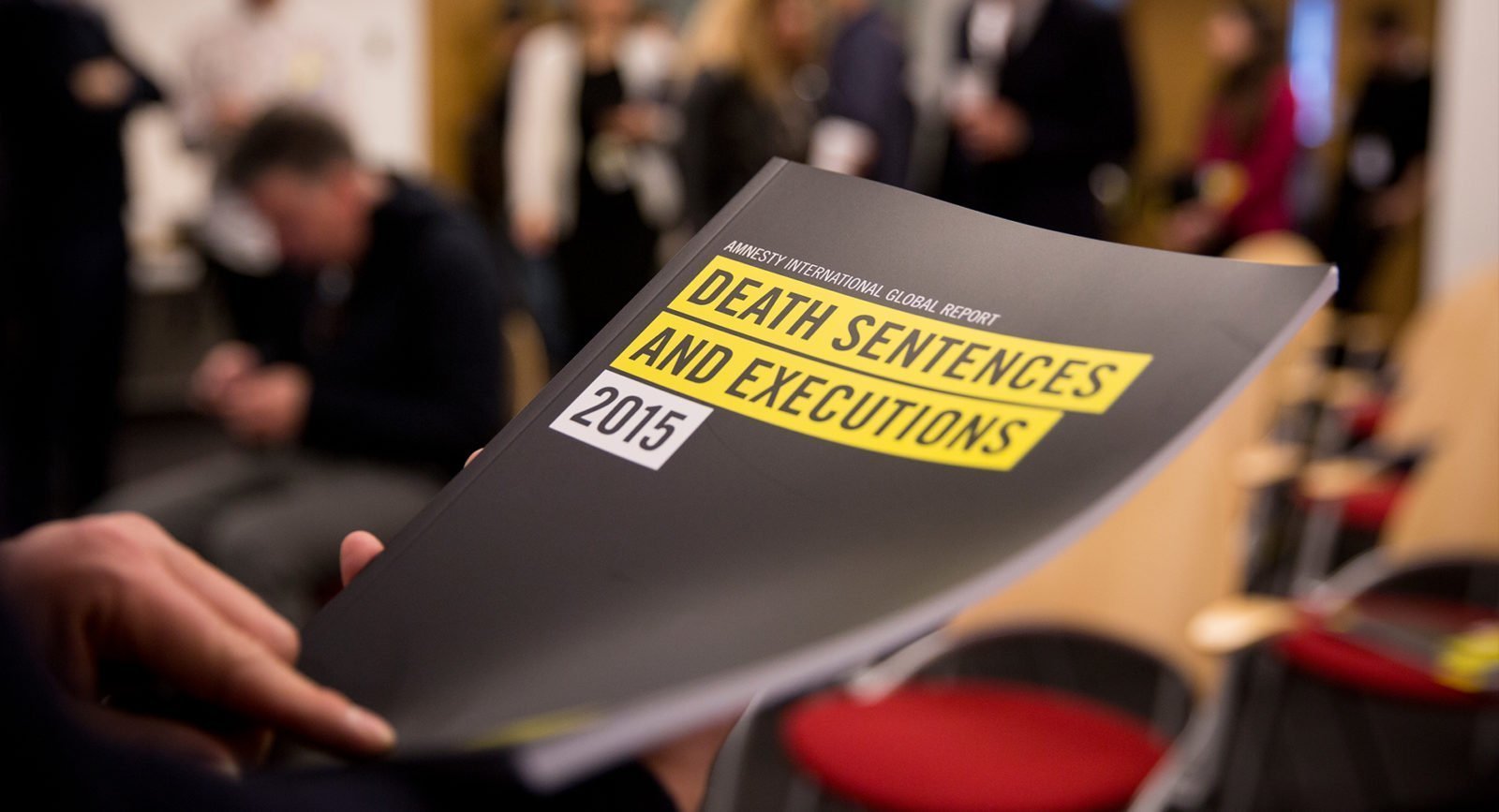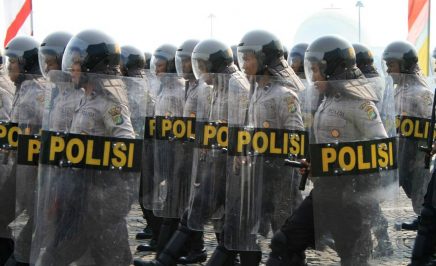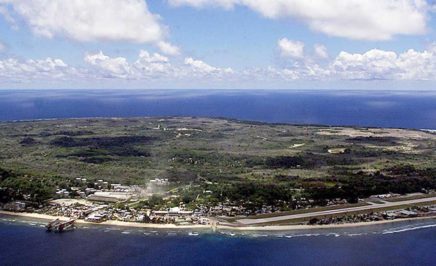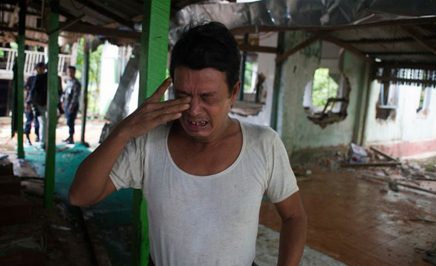President Joko Widodo should seize the opportunity to show that his government has the resolve to stand up for human rights by halting the imminent executions of up to 15 people.
Flawed justice system
The death row prisoners believed to at risk have been convicted of alleged drug offences and some did not receive a fair trial. Their cases are, like many others that Amnesty International monitored, emblematic of systemic flaws within the Indonesia justice system.
“President Widodo has the chance to show true resolve by halting these executions and ordering a full independent review of all death penalty cases,” said Rafendi Djamin, Director of Amnesty International’s South East Asia and Pacific Regional Office.
“President Widodo has the chance to show true resolve by halting these executions and ordering a full independent review of all death penalty cases.”
Rafendi Djamin, Amnesty International
“It is unacceptable for a government to execute people, especially when they did not receive a fair trial and have been convicted of offences that are not among the ‘most serious crimes’ in clear violation of international law and standards.”
Amnesty International opposes the death penalty in all cases without exception, regardless of the nature or circumstances of the crime; guilt, innocence or other characteristics of the individual; or the method used by the state to carry out the execution. The death penalty violates the right to life and is the ultimate cruel, inhuman and degrading punishment.
Reports of torture and ill-treatment
The imminent executions, which it is feared may take place in the coming weeks, will be the first this year. In 2015, Indonesia executed 14 people.
Amnesty International’s research has revealed that the death penalty in Indonesia has been implemented in cases that involve torture or other ill-treatment, denial of effective legal counsel, manifestly flawed proceedings, and even the use the death penalty on juvenile offenders or have a mental or intellectual disability.
“In the cases we examined, the police tortured or otherwise ill-treated some of the detainees, including to extract ‘confessions’. Many weren’t given access to a lawyer at the time of their arrest and at other stages of the process,” said Rafendi Djamin.
Unlawful executions
Amnesty International also recorded the cases of five death row prisoners who were executed despite the fact that Indonesia courts agreed to hear their appeals.
In the case of two prisoners, there was no adequate investigation to check whether they were juvenile offenders or had a mental and intellectual disability. In such circumstances, an execution is unlawful.
Within weeks of coming to power, President Widodo rebuffed calls that death row prisoners convicted of drug-related offences should receive clemency, and suggested that the death penalty should serve as a deterrent – a claim for which there is no evidence. However, when President Widodo came to power in 2014, he had made encouraging promises on human rights.
“At a time when most of the world’s countries have rid themselves of this unconscionable practice, the execution of these people would consign Indonesia to the status of an outlier,” said Rafendi Djamin.
“At a time when most of the world’s countries have rid themselves of this unconscionable practice, the execution of these people would consign Indonesia to the status of an outlier.”
RAFENDI DJAMIN, AMNESTY INTERNATIONAL
“President Widodo still has time. If he halts the death penalty, commutes their sentences, and establishes a moratorium as a first step towards abolition, Indonesia can begin to re-establish its reputation on human rights in the region.”
Background: individual death row cases documented by Amnesty International
The Indonesian authorities have repeatedly claimed they apply the death penalty in line with international law and standards. In a 2015 report, Flawed Justice: Unfair Trials and the Death Penalty in Indonesia, Amnesty International highlighted the cases of 12 death row prisoners whose cases illustrate the manifestly flawed administration of justice in Indonesia that resulted with flagrant human rights violations. Some of these cases relate to some of the prisoners believed to be at risk of imminent executions.
Agus Hadi, Pujo Lestari and another man were arrested for attempting to smuggle 12,490 benzodiazepine pills from Malaysia in 2006. They were detained at the narcotics directorate of the Riau Islands Police Headquarters on 22 November that year, interrogated there for 20 days and then transferred to the Batam prosecution detention centre. They were held in total for nine weeks before they appeared before a judge at their first trial hearing in the Batam District Court at the end of January 2007. Court documents indicate that Agus Hadi only received assistance from a lawyer on 12 December, 20 days after his arrest. Pujo Lestari had legal counsel appointed by the Batam District Court on 8 February, 78 days after his arrest and a week after the court had scheduled the first trial hearing.
Zulfiqar Ali, a Pakistani national, was arrested at his home in West Java province on 21 November 2004, and charged with possession of 300g of heroin. During his pre-trial detention, he was refused the right to contact his embassy and was not permitted any access to a lawyer until approximately one month after his arrest. According to court documents, the Chief of Tangerang District Court granted the prosecutor an extension of Zulfiqar’s detention from 4 March to 2 May 2005. This means he was detained for at least three months before being brought to the first trial hearing, although there is no information as to when the first trial hearing started.
While he was being interrogated by the Soekarno-Hatta Airport district police, Zulfiqar Ali was kept in a house for three days and punched, kicked and threatened with death unless he signed a self-incriminating statement, which he later did. After three days his health deteriorated to the extent that on 24 November 2004 he was sent to a police hospital, where he required stomach and kidney surgery due to damage caused by the beatings. He was in the hospital for 17 days. During his trial he described this torture, but the judges allowed the “confession” to be admitted as evidence. There has been no independent investigation into his allegations.
Zulfiqar Ali did not speak Bahasa Indonesia. He received limited translation assistance throughout his detention and during the proceedings against him. At the trial, he was provided with translation only from Bahasa Indonesia to English only, but he understood only a little English. He was convicted and sentenced to death in 2005. His death sentence was upheld by the Supreme Court in 2006.





